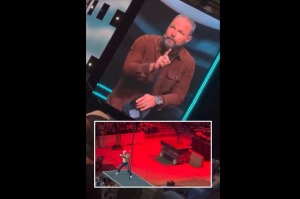Ask Chuck: Considering a reverse mortgage?
My neighbor says we should consider a reverse mortgage. My wife and I are split about it. Can you break the deadlock?
Reverse Mortgage Deadlock

Dear Reverse Mortgage Deadlock,
I am not sure that I can break the deadlock you describe, but I can give you my perspective and supporting data. I would vote no, even though your wife and neighbor like the idea.
What is a reverse mortgage?
A reverse mortgage is for people over 62 who want to borrow against the value of their home. I’m not a fan because I do not like the risk of anyone losing their home. Reverse mortgages are complicated and expensive.
Here are some basic facts:
- Must be 62 or older to qualify, and no one under 62 may be included as a borrower.
- Property remains in the borrower’s name.
- Medicaid eligibility may be threatened because of the increase in income.
- Borrowers must live in the house. The loan is due if one moves to assisted living for more than a year. If moving out of the house, the loan must be closed within a year.
- In the event of death, the estate must pay off the remaining balance. The loan is not assumable. Anyone living in the home who is not on the loan may be forced to vacate.
- Heirs have 30 days to declare if the loan will be repaid or the home will be sold. Without a decision, a lender can initiate foreclosure proceedings.
- If the home sells for less than the balance, FHA insurance (required) covers the shortfall.
A Home Equity Conversion Mortgage (HECM) is the most common, but all types have financial implications. Money can be provided in a lump sum, in equal payments over a fixed period (months or years), as a line of credit, or as a combination of these. There are numerous costs.
Initial costs are not good
These include origination fees and closing costs that include an appraisal, a title search, surveys, inspections, recording fees, mortgages taxes, credit checks, etc. An initial mortgage insurance premium is charged by the lender and paid to the Federal Housing Administration (FHA). This guarantees that loan payments advance but is in addition to homeowner’s insurance.
Ongoing costs are not good
These include interest, servicing fees, and the annual mortgage insurance premium, in addition to homeowner’s insurance, property taxes, and flood insurance (if applicable). The larger the loan balance and the longer the loan is kept, the higher the ongoing costs will be due to accumulated interest. Keep in mind that taxes, insurance, and homeowner association fees may increase along with repairs and maintenance for an aging home.
If a future move is a possibility, a reverse mortgage is impractical due to the high costs involved. If a sale occurs, borrowers have six months to repay the loan. When homeowners live longer than expected and borrow the limit of their loan proceeds, they may have no other source of capital. However, if the property significantly increases in value, it could be sold and the profits used to move. Wise management of funds is necessary so the borrower does not face a serious predicament. Heirs are the losers because debt increases and equity decreases.
Better options
- If cash is needed for maintenance/repairs, seek a home improvement loan.
- Reduce overhead via tax deferral programs for seniors with low-cash flow.
- Refinance, or consider (carefully) a home equity loan.
- Sell the home, then buy or rent something more affordable.
- Sell the home, and move in with relatives. Use proceeds to convert a portion of their home or garage into a private apartment. Or build a tiny home, a pavilion with guest quarters, or a Granny Pod on their property. With appropriate boundaries, this can benefit multiple generations.
Thoroughly research all options. Cash-strapped seniors are vulnerable to ‘solutions’ that can fix their financial problems. The extra fees and fine print can be difficult to understand. Work with a reputable lender to avoid any banking scams. Those who are home-rich but cash-poor may find a reverse mortgage to be an option, but the financial commitment must be fully understood.
Pray, and seek wise counsel. “Where there is no guidance, a people falls, but in an abundance of counselors there is safety” (Proverbs 11:14 ESV).
In my recent book, Seven Gray Swans: Trends that Threaten Our Financial Future, I consider economic threats that we should keep in full view as we navigate a volatile economic environment. I think you will benefit from reading it.
Chuck Bentley is CEO of Crown Financial Ministries, a global Christian ministry, founded by the late Larry Burkett. He is the host of a daily radio broadcast, My MoneyLife, featured on more than 1,000 Christian Music and Talk stations in the U.S., and author of his most recent book, Seven Gray Swans: Trends that Threaten Our Financial Future. Be sure to follow Crown on Facebook.





























